Buying Guide for the Best Family Tents
Choosing the right family tent is crucial for ensuring a comfortable and enjoyable camping experience. When selecting a tent, consider the size of your family, the type of camping you plan to do, and the weather conditions you might encounter. A good family tent should provide enough space for everyone, be easy to set up, and offer protection from the elements. It's important to balance these factors to find a tent that meets your family's needs and enhances your outdoor adventures.CapacityCapacity refers to the number of people a tent can accommodate. It's important because it determines how much space you'll have inside the tent. Tents are usually labeled by the number of people they can fit, such as 4-person or 6-person tents. However, these ratings often assume a snug fit, so if you want extra space for gear or more comfort, consider choosing a tent with a higher capacity than the number of people in your family. For example, a family of four might prefer a 6-person tent for added room.
SeasonalitySeasonality indicates the types of weather conditions a tent is designed to withstand. This is important because it affects the tent's durability and comfort in different climates. Tents are typically categorized as 3-season or 4-season. A 3-season tent is suitable for spring, summer, and fall, offering ventilation and protection from rain. A 4-season tent is designed for harsher conditions, including snow and strong winds, making it ideal for winter camping. Choose based on the typical weather conditions you expect to encounter during your camping trips.
Setup ComplexitySetup complexity refers to how easy or difficult it is to pitch the tent. This is important because a tent that's easy to set up can save time and reduce frustration, especially after a long day of travel. Tents with simple designs, such as pop-up or instant tents, are quick to set up and ideal for families with young children or those new to camping. More complex tents may offer better stability and features but require more time and effort to assemble. Consider your family's experience level and patience when choosing the setup complexity.
Weight and PortabilityWeight and portability are about how heavy the tent is and how easy it is to transport. This is crucial if you plan to hike to your campsite or move frequently. Lightweight tents are easier to carry but may sacrifice some durability or space. Heavier tents often provide more comfort and features but are better suited for car camping where weight is less of an issue. Consider how you'll be traveling to your campsite and choose a tent that balances weight with the features you need.
Weather ResistanceWeather resistance refers to a tent's ability to protect you from rain, wind, and other elements. This is important for keeping your family dry and comfortable during unexpected weather changes. Look for tents with a high waterproof rating, durable materials, and features like a rainfly and sealed seams. If you expect windy conditions, consider a tent with a sturdy frame and good anchoring options. Choose based on the typical weather conditions you expect to face and the level of protection you desire.
VentilationVentilation is about how well a tent allows air to circulate, which is important for reducing condensation and keeping the interior comfortable. Good ventilation is crucial in warm weather to prevent the tent from becoming stuffy. Look for tents with mesh panels, windows, and vents that can be opened or closed as needed. If you plan to camp in hot climates, prioritize tents with excellent ventilation features. For cooler climates, ensure the tent can be sealed to retain warmth while still allowing some airflow.
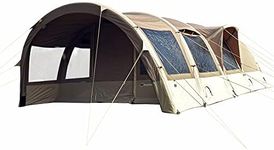


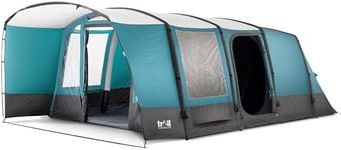

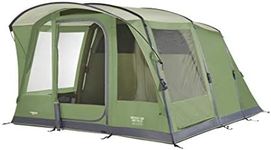

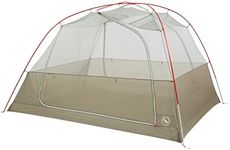
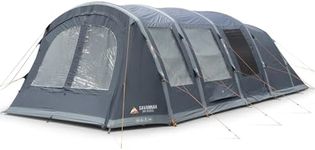

![Vango Purbeck 600XL Family Tent [Amazon Exclusive], Large 6 Man Tent with 3 Rooms, Enclosed Porch Area, Double Living Area, Climate Windows - Vivid Grey](https://images-proxy.bestreviews.guide/5wV7iMT7Y4lm801VA0VFuGGn7o0=/0x150/https://m.media-amazon.com/images/I/31QwzekSE2L._AC_CX679_.jpg)

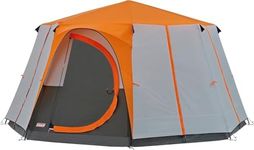
![Vango Farnham 500 Stylish 5 Man Tunnel Tent [Amazon Exclusive] with TBS II for All Weather Family Camping, Attached Sun Porch, Sewn-In Groundsheet, River Blue](https://images-proxy.bestreviews.guide/lOl3b7srnislEWVjPxjuE2HKmqw=/0x150/https://m.media-amazon.com/images/I/41pzrJulNpL._AC_CX679_.jpg)


